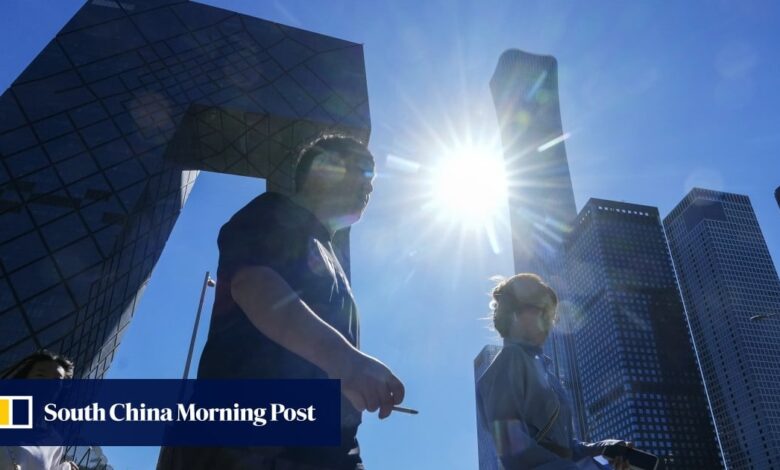China is racing ahead in research output amid tech curbs, but quality must keep pace with volume, Shanghai forum learns

[ad_1]
In a congratulatory letter to the forum, President Xi Jinping said scientific and technological innovation is an important force for mankind to jointly cope with risks and challenges as well as promote peace and development.
“China will firmly pursue a mutually beneficial and win-win opening up strategy … and continue to promote international scientific and technological exchanges and cooperation,” he said, referring to the full opening up of China following nearly three years of strict pandemic curbs.
“We will work with other countries to create an open, fair, just and non-discriminatory environment for scientific and technological development,” Xi said in the letter.
According to the Elsevier report, China’s top-tier cities demonstrate strong advantages in attracting talent and premier research institutions, although American cities such as Boston and New York remain among the best in terms of competitiveness in scientific research.
While China has become a global leader in research output, its quality has also improved but not at a similar pace, Alexander van Servellen, a Singapore-based consultant with Elsevier, told the forum in Shanghai.
Instead of being “skilled producers of research papers”, Chinese researchers should also be bolder and use more imagination in their work, urged Dr Wang Xueying from the Shanghai Institute for Science of Science, which co-issued the ideal city ranking.
Singapore ranked first in the list, which looked at the attractiveness of international cities for scientific workers relating to standards of education, science and technology, and talent. Next came Shenzhen, Boston, Shanghai and New York, with Beijing in sixth position.
The Elsevier study found that Shanghai had a high number of researchers, technological enterprises, and national laboratories, and was growing its innovative capacity the fastest among all 20 cities surveyed.
However, it still lagged behind in the overall quality of scientific papers and the quality of patents filed, Servellen said.
“Some of the other cities are producing higher quality, higher cited research papers and higher quality patents, so that’s something we have to work on.”
There has been improvement in this regard, but it has not been as fast as the growth in the volume of scientific research done, where China has surpassed both the United States and the European Union, Servellen said.
“I would say 20 years ago the quality was about half the level of the world average, much lower than world average.
“If you move today, the quality level of Chinese research has surpassed the EU, surpassed world averages and is getting close to the average of the US. This is really quite an impressive achievement for China’s position.”
We can’t just be good test takers
According to Dr Wang – an analyst of innovation policies – generating children’s passion in science is the top challenge for China now.
“Their interest is a great treasure when we talk about building up the reserve force for young scientists. Research out of interest often leads to big creativity,” she said.
She also noted that Chinese researchers needed more self-motivation to make bold explorations, regardless of the results.
“We have overly emphasised on the price-performance ratio of research, and therefore many have become just skilled producers of research papers,” she said.
“We can’t just be good test takers in scientific research. We also should be good test designers.”
[ad_2]
Source link






